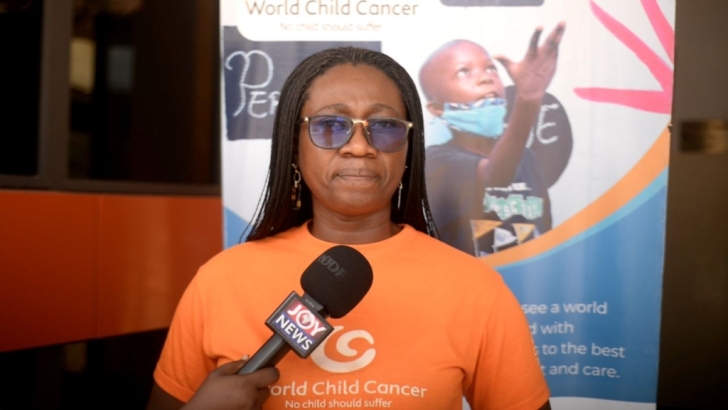Ghana faces daunting challenges in managing childhood cancer and sickle cell disease, with survival rates lingering below 50 percent. Late diagnosis, limited treatment access, and a critical shortage of trained haematology professionals contribute to these poor outcomes. In response, World Child Cancer has launched a nationwide effort—the Strengthening Haematology Skills Project—to bolster clinical capacity, streamline blood management, and address widespread myths that discourage voluntary blood donation.
Survival statistics for blood‐related diseases in Ghana paint an urgent picture where childhood leukemia and other cancers often go undetected until they reach advanced stages. There’s also the image of sickle cell disease patients frequently experiencing acute crises, requiring timely transfusions. A fewer than half of affected children survive, owing largely to resource constraints and workforce gaps.
The shortage of dedicated haematologists and oncology pharmacists exacerbates these obstacles, leaving hospitals and clinics ill-equipped to manage complex transfusion protocols and psychosocial patient needs. The World Child Cancer has launched the Strengthening Haematology Skills Project as a result and the initiative aims to close critical skill gaps in both clinical and emotional support for patients, enhance safety and efficacy of blood transfusions for leukemia and sickle cell crises and foster sustainable, in‐country expertise via a training‐of‐trainers model.

“ With the ongoing challenges of transfusion reactions, limited funding, and poor management of blood disorders, we launched this project to strengthen haematology care in Ghana ”
Adwoa Pinamang Boateng Desu
Supported by Bristol Myers Squibb, the programme has reached 282 healthcare professionals nationwide, 14 specialized oncology pharmacists and multiple nurses and laboratory technologists, each empowered to train peers. This cascade approach multiplies impact by equipping local trainers with both diagnostic protocols and patient‐counseling techniques.
Recognizing that technical expertise alone cannot drive better outcomes, the curriculum includes standardized protocols for blood typing, cross‐matching, and transfusion monitoring, psycho–social modules on communicating diagnoses, managing treatment anxiety, and supporting families through crisis and hands‐on blood‐supply management workshops to minimize wastage and ensure traceability.
To bridge the gap between clinical practice and community engagement, the project collaborated with Ghana Health Service’s Health Promotion Division to produce illustrated brochures explaining transfusion procedures for sickle cell and leukemia, radio scripts and social‐media content designed to demystify blood donation and training videos showcasing best practices in patient empathy and consent. These resources aim to elevate both public understanding and clinician confidence in addressing sensitive cultural beliefs around blood.
Persistent misconceptions such as donated blood being diverted for occult rituals have done nothing but erode public trust in medical institutions. These misconceptions have also resulted in chronic shortages, delaying life‐saving transfusions and forced clinicians to ration scarce supplies, sometimes with fatal consequences.

“ Every unit of blood donated is fully traceable from the point of donation to the recipient. Even discarded units are properly accounted for. The National Blood Service does not collaborate with any spiritual or non‐clinical entities. All blood is used strictly for medical purposes ”
Dr. Shirley Owusu‐Ofori
Key measures in this endeavour include bar-code tracking of each donation through collection, testing, storage, and transfusion, making public dashboards report donation statistics and safety metrics and engaging in community outreach via local radio and church forums to debunk harmful narratives. Within six months of launching the number of voluntary donors at regional centers rose by 25 percent.
Reported transfusion reactions also declined by 40 percent, indicating improved protocol adherence and patient satisfaction surveys reflect greater confidence in both clinical care and emotional support. Healthcare facilities are beginning to see a tangible shift in workflow efficiency and patient trust, laying a foundation for long‐term sustainability yet despite promising progress, the project has navigated several hurdles such as ensuring consistent funding beyond the initial grant period.
Addressing rural outreach gaps where community health workers are scarce just as much as overcoming language barriers that complicate standardized messaging have also posed as challenges. Lessons from these experiences highlight the need for local partnerships with traditional leaders to tailor messages, mobile training modules to reach remote clinics and the establishment of a national haematology professional network for ongoing mentorship.
To embed gains into Ghana’s health system, stakeholders are exploring the idea of incorporating the training curriculum into medical and nursing school syllabus. Government is also committing to formalizing haematology roles within district hospitals.
Expansion of myth‐busting campaigns in schools and marketplaces is also something that is on the table. By weaving these elements into the national healthcare fabric, Ghana can aspire to double survival rates for childhood cancer and sickle cell disease over the next decade.
The Strengthening Haematology Skills Project represents a multifaceted strategy—spanning clinical training, psycho–social support, educational outreach, and myth dispelling—to fortify Ghana’s blood care system. Early indicators suggest meaningful improvements in both practice and public perception. Continued investment and collaborative partnerships will be crucial to sustain momentum, with the ultimate goal of ensuring every Ghanaian patient receives safe, effective, and compassionate haematology care.



